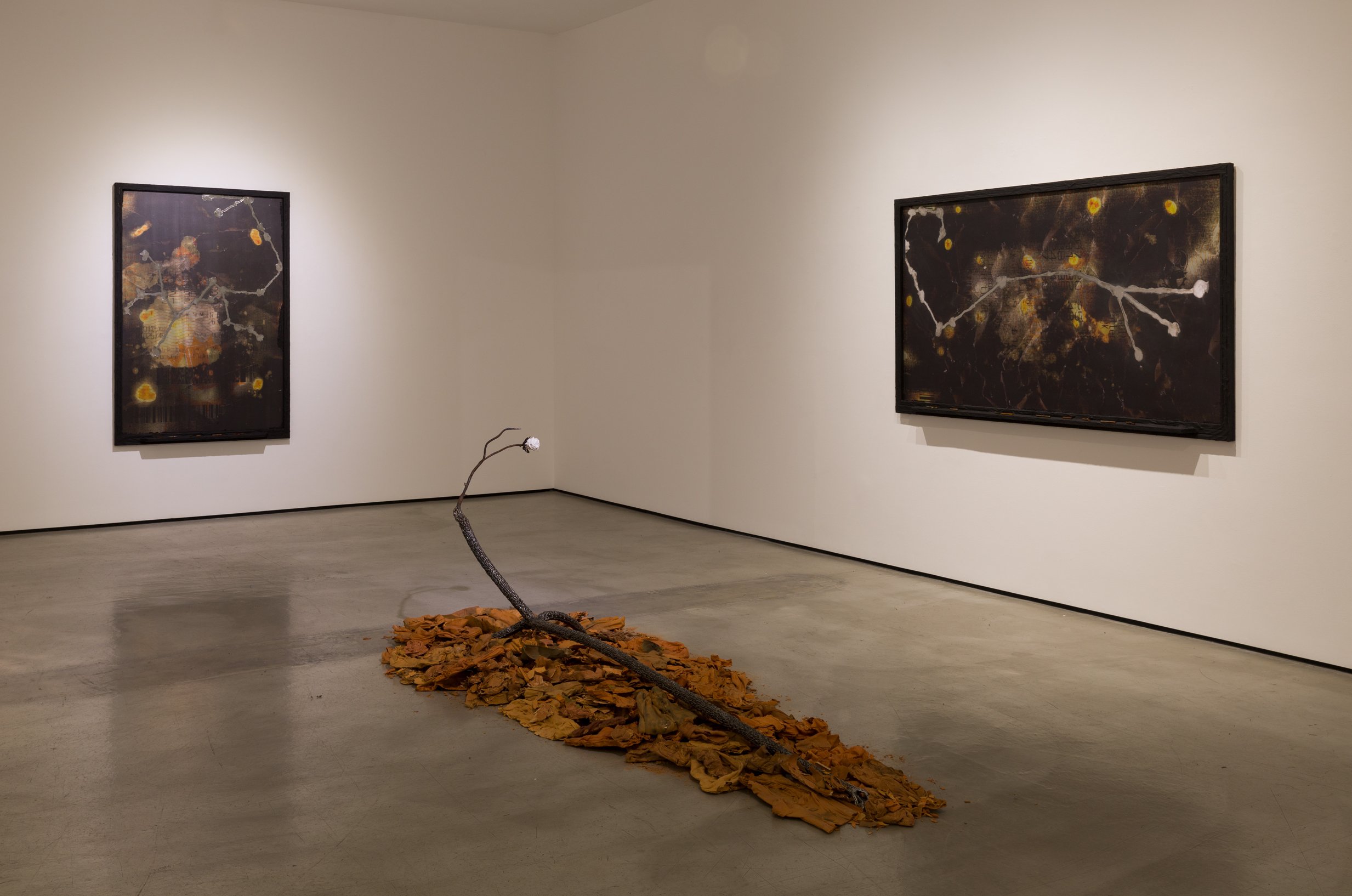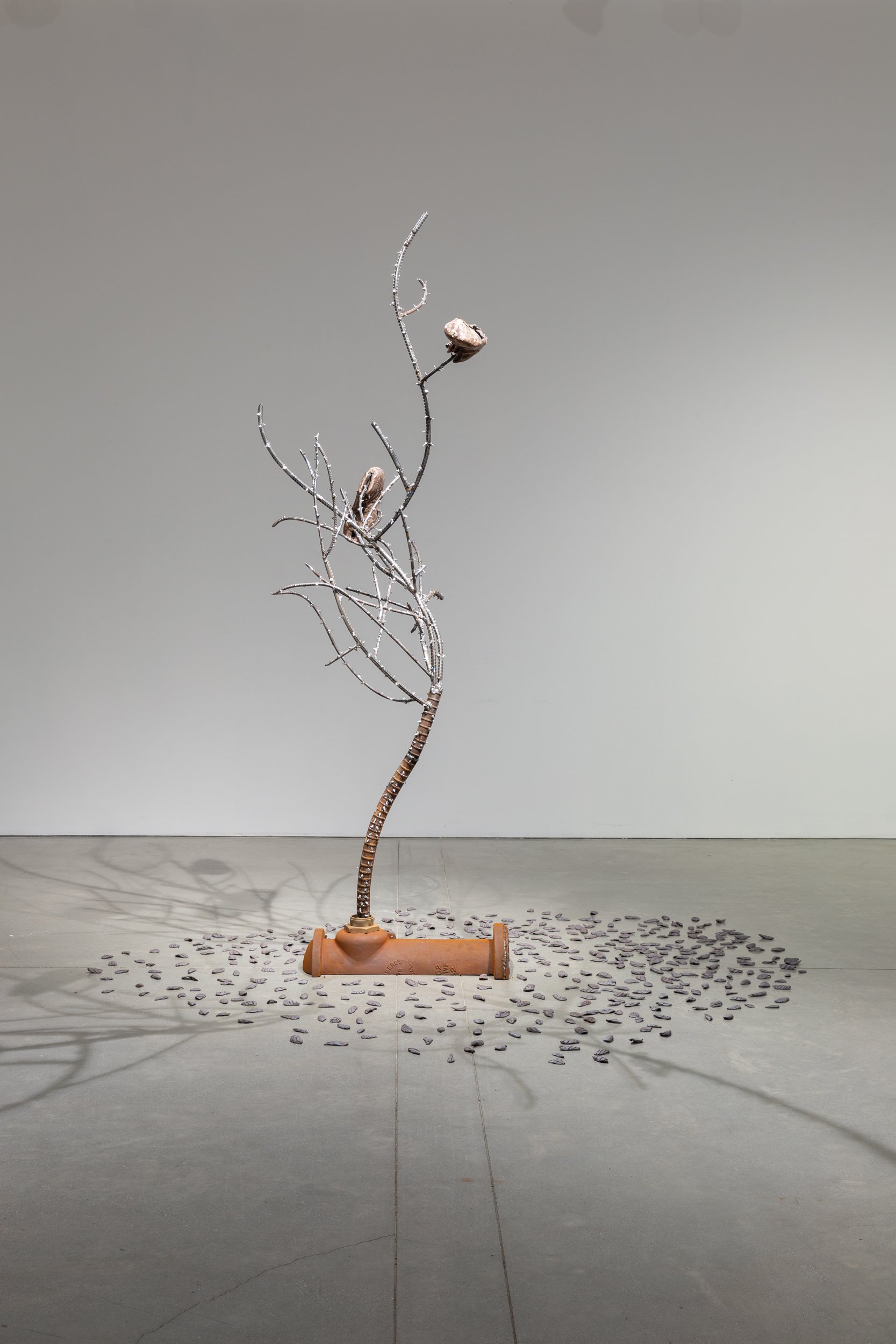October 2024
Tyler Christopher Brown
Film directed by Juancy Matos for Fountainhead Arts
Tyler Christopher Brown’s found-materials practice is centered on his belief that discarded objects–old lottery tickets, rusted metal, or bent nails–can act as a “vessel that encapsulates a time period, while presenting a multitude of possibilities to a viewer.” Dirty garments found among homeless encampments on the streets of his home in Los Angeles, for example, might not look like much at first glance. But when dipped in porcelain or terra cotta, and fired up in a kiln, Brown transforms them into beautiful flowers attached to the stems of found metals and thorns of nails, as in Tomorrow’s Promises, Seen and Not Heard (2023).
The striking beauty of the bouquet plays with viewers who are unaware of the “coded language” embedded into the piece, Brown says, poking at deeper societal issues such as inequality and waste. As a former high-end fashion designer in New York City born to a working class family in Southern California, Brown is interested in honest, if not confrontational reflections on modern society’s fractured promises around wealth and rights, as well as its lingering scars. He’s also aware that his work–which turns bullet-hole ridden American Muscle car shards, or old musical instruments into stunning pieces worthy of prime real estate on dining tables–will often inhabit the spaces of the wealthy he often seeks to confront. “I like to think: If a buyer knows the story behind the work, what’s the dinner conversation like?”
Brown’s influences are eclectic, ranging from the writing of Albert Camus to the lyrics of Donny Holloway songs on the radio. He finds himself drawn to “the absurdity of society,” he encounters in his research–such as the distinct differences between the cast iron fire hydrants in poor neighborhoods and bronze hydrants in wealthier neighborhoods. In Pipelines of Progress the former becomes the ground floor of an arresting piece complete with Jordan 11’s cast in bronze that hang from branches of American rebar, transforming the seemingly ordinary into an artistic object worthy of deep inquiry.
Brown’s leanings toward our absurd and unequal society made Miami–a city where luxurious skyscrapers are rapidly erected for wealthy newcomers, while long-time residents are pushed away–an interesting and fruitful location to conduct further research during his residency.
Words by Andrew Boryga






